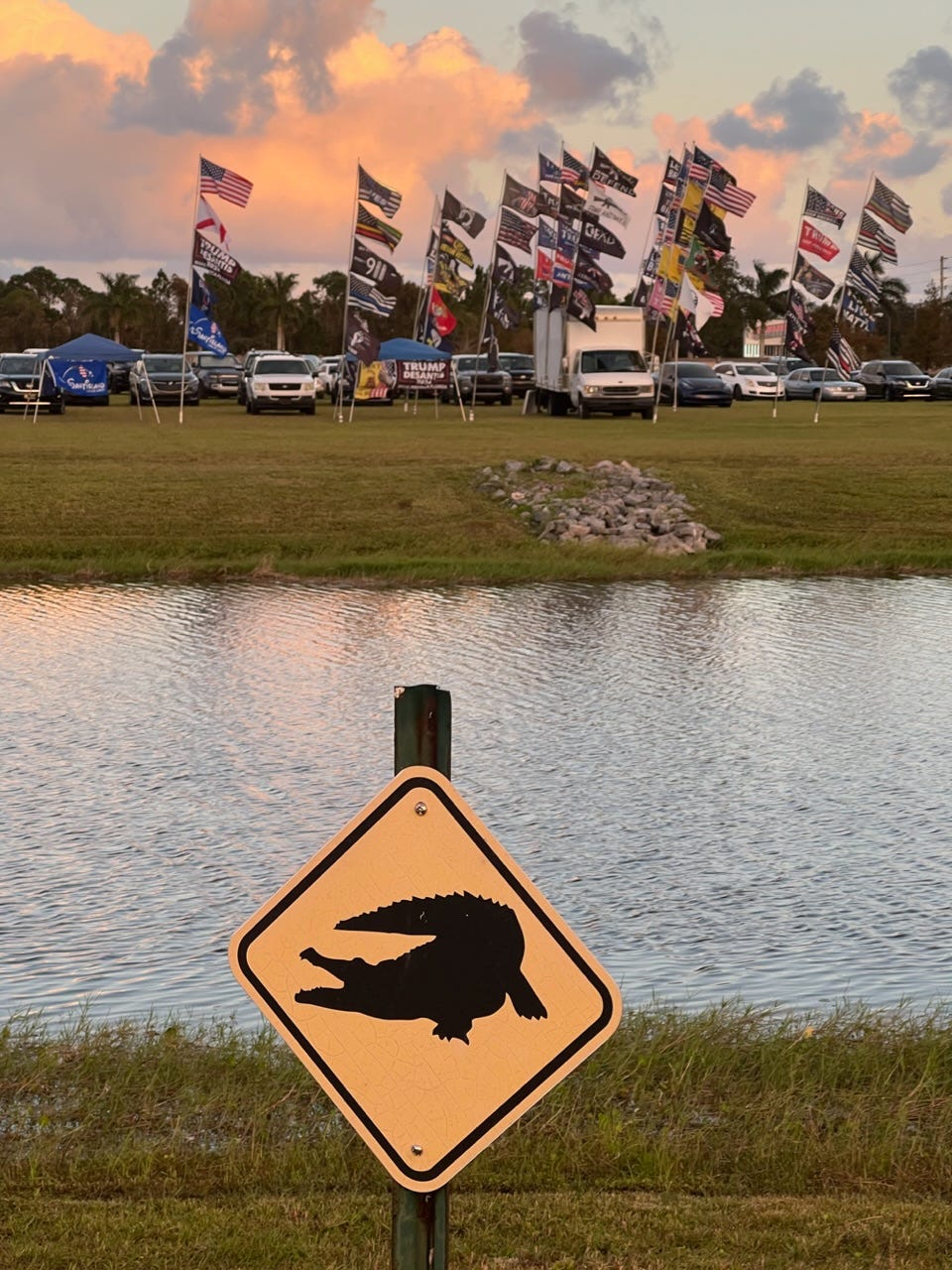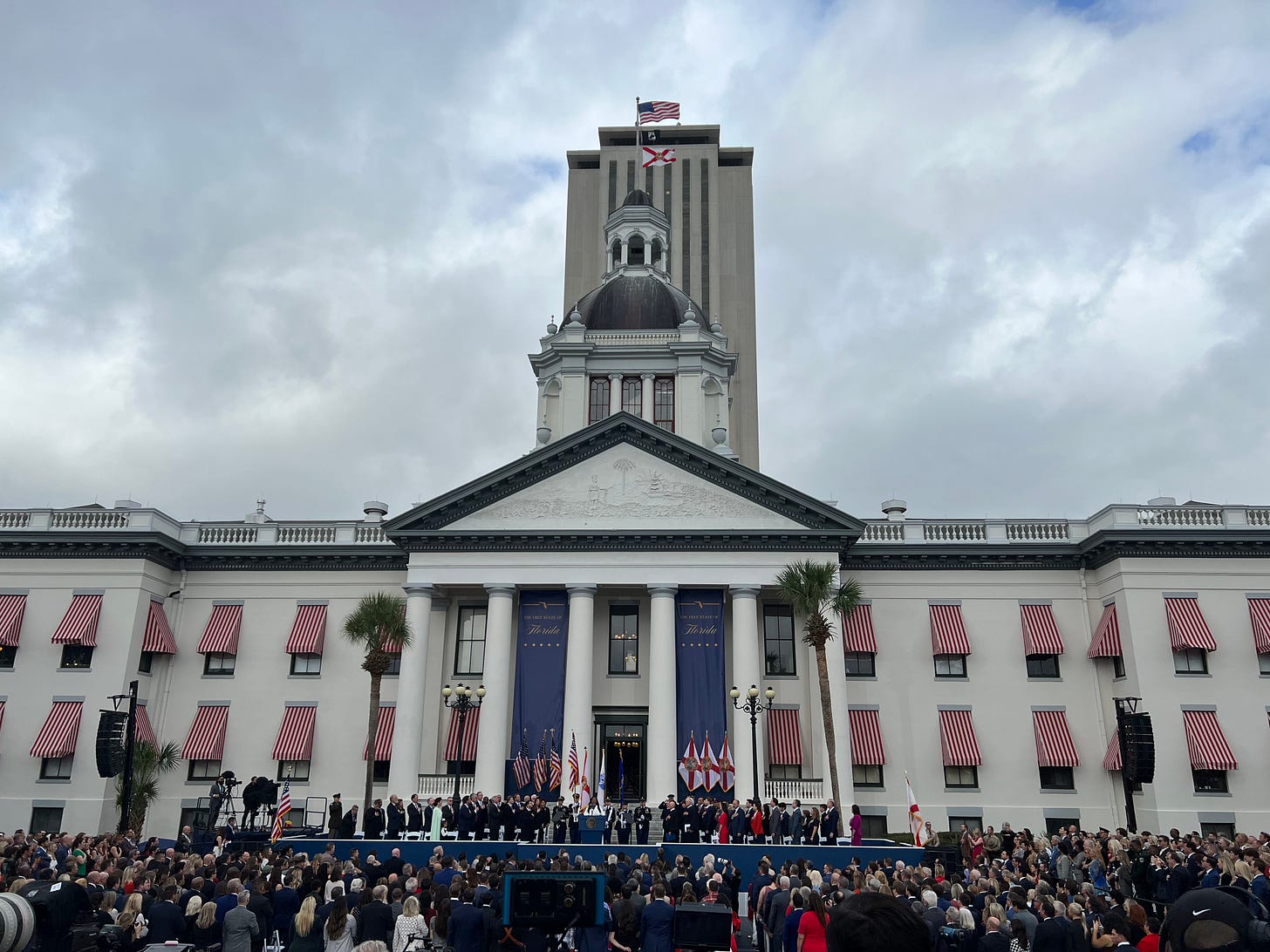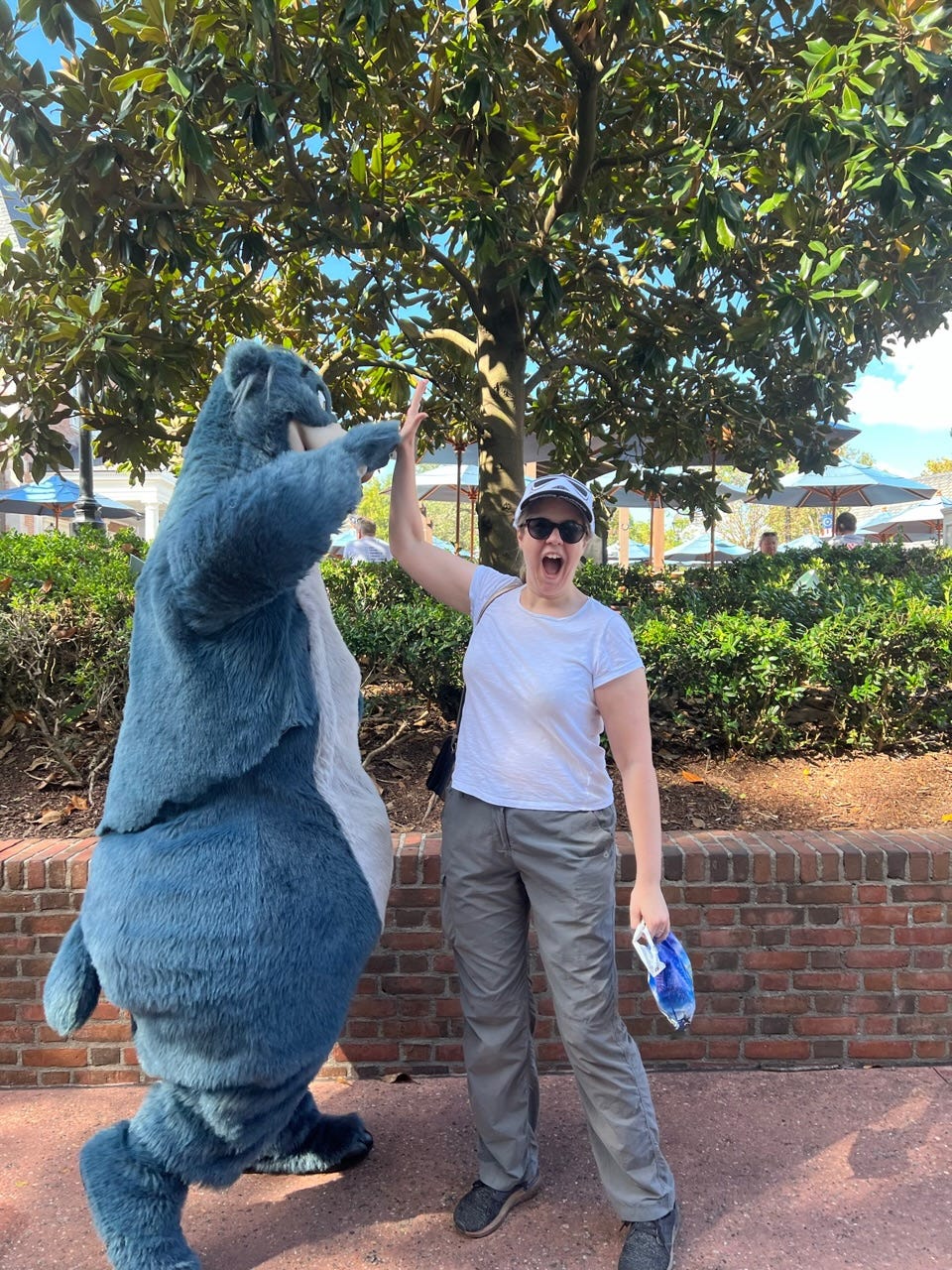Happy … Monday?
Some time last year, my editor asked me what ambitious pieces I would like to do, and I said something like, “I want to profile Ron DeSantis”—the Republican governor of Florida, who has made the “war on woke” a centrepiece of his electoral appeal, crusading against drag shows, leftwing university professors, Anthony Fauci, the Great Reset, vaccine mandates and ESG for pension funds. (OK, that one never took off in quite the same way.)
And my boss said something like: OK, but why don’t you profile Florida?
My piece for the May print edition of The Atlantic is the result:
Ron DeSantis’s Magic Kingdom
In the course of a single month this year, the following news reports emanated from Florida: A gun enthusiast in Tampa built a 55-foot backyard pool shaped like a revolver, with a hot tub in the hammer. A 32-year-old from Cutler Bay was arrested for biting off the head of his girlfriend’s pet python during a domestic dispute. A 40-year-old man cracked open a beer during a police traffic stop in Cape Coral. A father from East Orlando punched a bobcat in the face for attacking his daughter’s dog.
In headlines, all of these exploits were attributed to a single character, one first popularized in 2013 by a Twitter account of the same name: “Florida Man,” also known as “the world’s worst superhero,” a creature of eccentric rule-breaking, rugged defiance, and unhinged minor atrocities. “Florida Man Known as ‘Sedition Panda’ Arrested for Allegedly Storming Capitol,” a recent news story declared, because why merely rebel against the government when you could dress up in a bear suit while doing it?
Internet memes sometimes refer to Florida as “the America of America,” but to a Brit like me, it’s more like the Australia of America: The wildlife is trying to kill you, the weather is trying to kill you, and the people retain a pioneer spirit, even when their roughest expedition is to the 18th hole. Florida’s place in the national mythology is as America’s pulsing id, a vision of life without the necessary restriction of shame. Chroniclers talk about its seasonless strangeness; the public meltdowns of its oddest residents; how retired CIA operatives, Mafia informants, and Jair Bolsonaro can be reborn there. “Whatever you’re doing dishonestly up north, you can do it in a much warmer climate with less regulation down here,” said the novelist Carl Hiaasen, who wrote about the weirder side of Florida for the Miami Herald from 1976 until his retirement in 2021.
But under the memes and jokes, the state is also making an argument to the rest of the world about what freedom looks like, how life should be organized, and how politics should be done. This is clear even from Britain, a place characterized by drizzle and self-deprecation, the anti-Florida.
What was once the narrowest swing state has come to embody an emotional new strain of conservatism. “The general Republican mindset now is about grievances against condescending elites,” Michael Grunwald, the Miami-based author of The Swamp, told me, “and it fits with the sense that ‘we’re Florida Man; everyone makes fun of us.’ ” But criticism doesn’t faze Florida men; it emboldens them.
It is no coincidence that the two leading contenders for the Republican nomination both have their base in Florida.
[Read the rest at The Atlantic]
This was a daunting commission, for two reasons. The first is that Florida has many incredible chroniclers already: Carl Hiaasen, Craig Pittman, Lauren Goff and GTA: Vice City. You can’t move there without tripping over an iconic—and therefore possibly over-exposed—bit of Americana, from Disney to the Villages to alligators to millionaires with no taste.
The second is that DeSantis notoriously avoids all but the friendliest mainstream media outlets (the ones owned by Rupert Murdoch) and the most avidly partisan vloggers. There was simply no way to build a piece around offering in-depth psychological insights gleaned from hours of interviews with the candidate.
But there is a reason that “Frank Sinatra Has A Cold” became one of the emblematic pieces of New Journalism. So often, when you’re writing about celebrities—and American politicians are, if not celebrities, then at least brands—you’re writing about their aura, anyway. What they are seen to represent, who they are assumed to speak for, what wider cultural force they are deemed to embody.
One of the things that fascinated me from the start about DeSantis was his credentialism (he went to Yale and Harvard, then the Navy, then Congress) and how poorly that fits with the anti-intellectualism and anti-establishment mood of the Republican Party from the Tea Party to the Trump era. At Yale, DeSantis was a member of the same fraternity as George W. Bush once was; and he was captain of the baseball team, as Bush once was; and yet now he insists he was a denigrated, downtrodden outsider trapped among the toffee-nosed pinkos in his class.
The story of DeSantis helped me understand a pulsing contradiction which runs through a large part of the modern Republican party: loudly disdaining elite approval while secretly resenting its absence. (In Trump’s 2017 tweet claiming DeSantis would be a “GREAT governor”, he referenced the younger man’s attendance at Harvard and Yale.) So my conceit was this: let’s look at DeSantis and Trump in relation to the state where they both live. Florida Man is an American archetype—reckless, carefree, uncontrollable—which signifies everything DeSantis is not, but that he needs to be to succeed in the Republican Party of 2023.
Also, in case you’re wondering? I really did get my picture taken high-fiving Baloo. What a great day out.
I hope you enjoy the piece as much as I enjoyed driving my absurdly big car around Florida.
And if you do, why not subscribe to the Atlantic so they will let me do another of the 49 remaining states?







I'm a Brit who lived in Georgia (mostly south Georgia) for more than 20 years. Reading this, I found myself reminded of what a Brit told Anglophile Helene Hanff (84, Charing Cross Road) when she wondered aloud if she would find the England of literature. "It's there," he assured her. She would , in other words, find what she was looking for.
A fellow academic in south Georgia, a man from Pennsylvania, used to joke that our fastest way out of the South was to drive south. I know what he meant. Florida's craziness isn't hard to find, but we found more people there who seemed like non-Southern Americans, more "normal" to us non-Southerners. I can't help thinking from watching BBC travel shows, that finding the weird, ghastly, and laughable in Florida (or in California) is like shooting fish in a barrel. The big cars, guns, Disney, sorted. It's like going to England and doing Beamish, Stratford and Haworth, then possibly Sunderland for balance. The danger isn't in mockery or stereotyping, though. It's in the possibility of false correlation, of assuming that people vote as they do from monolithic reasons, of assuming that cars, guns, Disney, unfounded resentment, racism, or whatever, is sufficient explanation for why so many Floridians, and Americans, vote as they do. But the people I've met in "red states" yes, and especially in Florida are more complicated than that, and their (often reasonable,) concerns about being condescended to and ignored have met with... very real condescension. Trouble is, it's hard to build a coherent narrative from such material, much less an entertaining one.
Interesting comments. I was going to write that Florida seems resonant with Millwall Football Club in south east London, whose terrace chant - “everybody hates us and we don’t care” - seems the ultimate rejection of post war suburban values. Oops - looks like I did anyway....but the comments remind me that generalising is a little to close to demonising for comfort. Makes your job verrrry difficult!